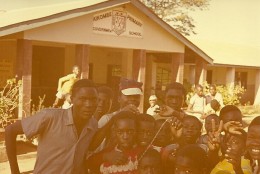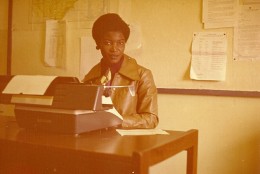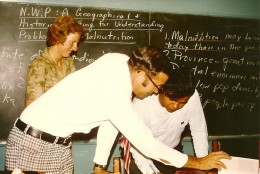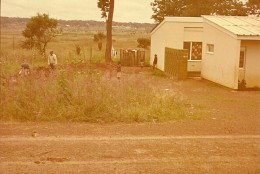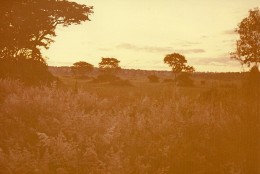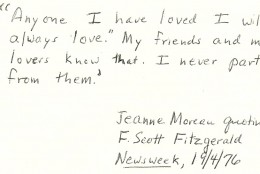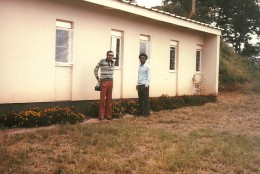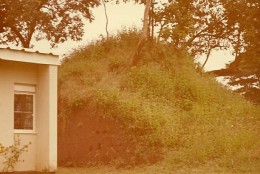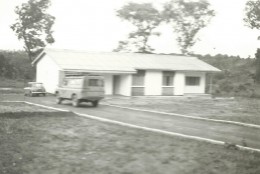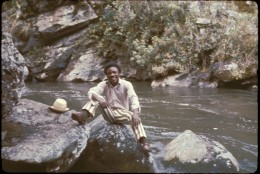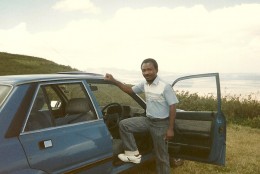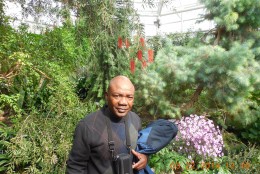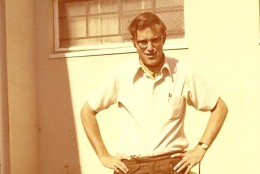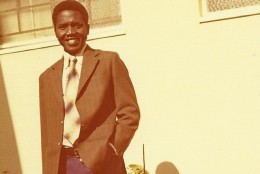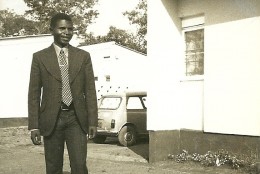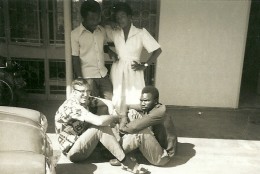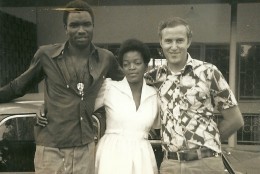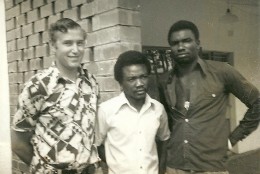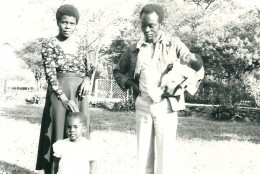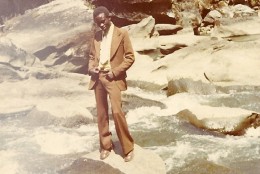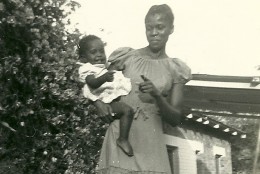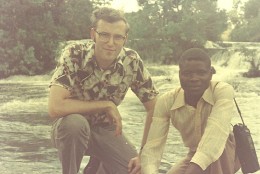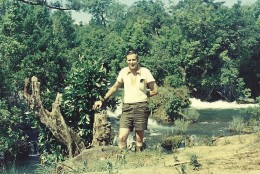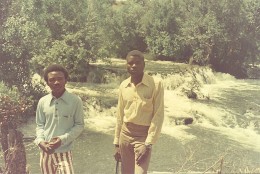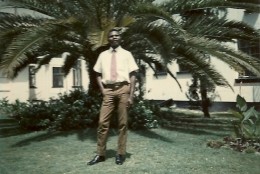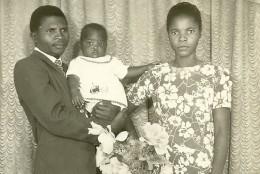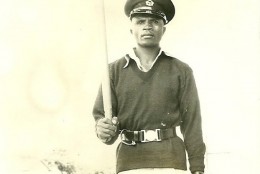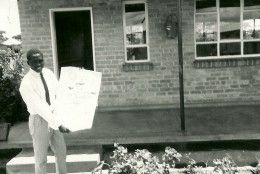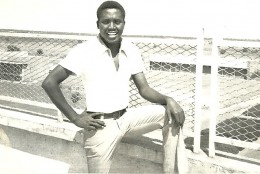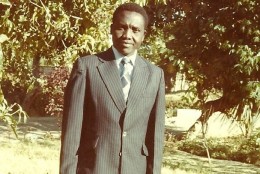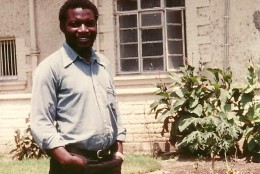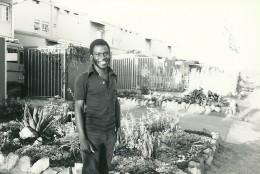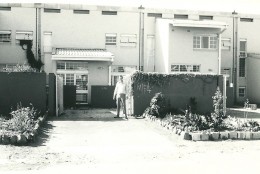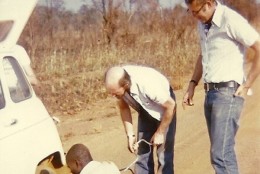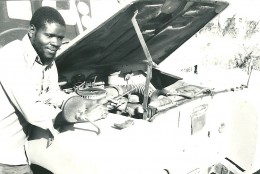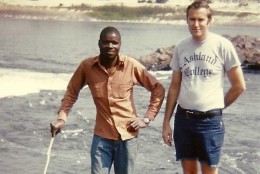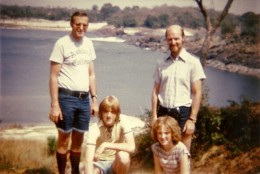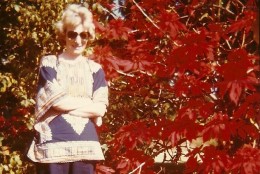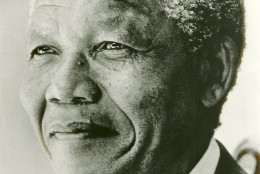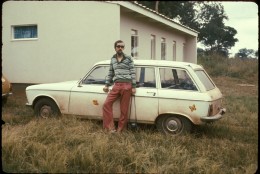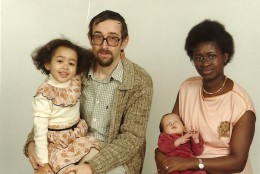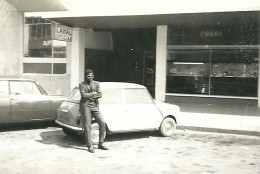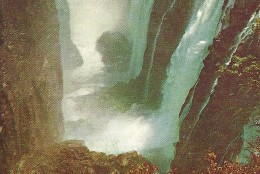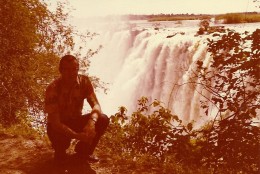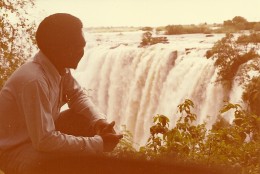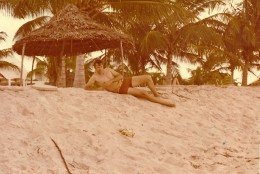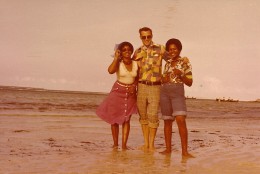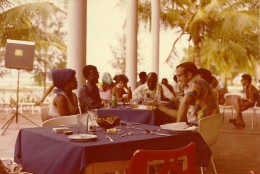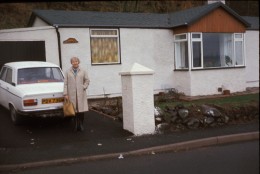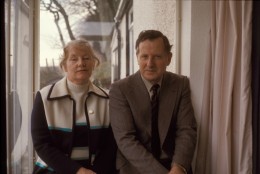UNZA in the NWP: 1975-79 — new chapter in my life
Returning home to the NWP. While I enjoyed teaching at the main campus of UNZA in Lusaka, several things happened to make me change course. One, Zindi decided life in Zambia was no longer her “cup of tea” and decided to return to America, where she could once again live in New York City. Two, I decided living in the always chaotic city of Lusaka was not my “cup of tea” either. Three, I decided I did not want to complete my Kenyan research, despite the three years spent on it. Rather I wanted to work in and complete historical research on the NWP. When UNZA’s Extra-Muriel Department decided to expand by opening a new centre for the NWP in Solwezi, I applied.
A Huge Task! Setting up a new centre for the Extra-Muriel Department. Both the government as well as the University wanted UNZA to have at least a small presence in the province. Setting things up became a joint endeavor with NWP provincial officials, centering on the Ministry of Education, much involved. I was the negotiator and navigator between all. Tack and diplomacy were ultra necessary! Many mutual tasks included: finding me temporary housing until UNZA could build a home, locating an office in the overwhelmed provincial headquarters area and finding places to hold any classes that I developed. My first office was located in a large store room at Kikombe Primary School halfway between my first home and the provincial buildings. Annie Matafwali was my first secretary. This office was a good way to keep in touch with the younger generation, but not so good for office productivity! Still we prevailed. In 1977, we got new office space in a central Provincial Administration building and Felix Mukuka replaced Annie as my secretary.
UNZA: office at Kikombe, Annie, and health education class
- Kikombe Primary School w/our first office
- Annie Mwatafali, first secretary
- A class on health education
My two homes in Solwezi. UNZA housed me well throughout the 1970s. I was given in a new house in Lusaka in 1971 and then again two new homes in Solwezi between 1975 and 1978. In early 1975, when I moved to Solwezi, I was allocated a charming temporary home at the new Teachers Training College, which was also just being opened. It was an unusual architectural design and was identical to other homes at the College. It was shaped like the Times Roman capital letter “I.” One wing contained the kitchen and the living room and the opposite wing contained three bedrooms. The two wings were connected by a corridor containing the bathroom and separate toilet. Between the sitting home and larger bedroom was an open outside patio. From the bedrooms you could look across a wide valley that separated the college from the town. Then in 1978 UNZA provided me with a permanent home for NWP resident tutors. It contained three bedrooms, a huge sitting room and a guest wing with a separate entrance. It took a year to complete and was the most beautiful and delightful home that I have ever lived in, or expect to live in. As I helped design it, I am prejudiced! From the back, you could look across a lovely valley.
Photos of (and from) these homes: 1975 to 1979. Beautiful views across the valley (dambo) from my first home, neighbour working in his garden (home identical to mine), plus my philosophy developed in this period.
- Neighbour’s & garden w/town and valley in background
- The valley & anthill looking towards town
- My philosophy
- Front of my first Solwezi home w/Wim and Bwalya
- Anthill was cut away on one corner of first home
- UNZA’s Landrover, front of second home
Pascal Bwalya Ndakala. As I was now living alone in a new town, I invited Pascal Bwalya Ndakala to join me. We had met in Lusaka in 1974 when he was at Matero Boys Secondary School. In Solwezi he helped me set up my home and transferred to Solwezi Secondary School. Later, I mentored and helped home school him. After he sat his secondary school examinations in 1978, he moved back to Lusaka. In many ways, he became and remains my alter ego, which means an “inseparable friend.” Over the last 40 years, we have watched each other age. Below are three selected photos of him in 1975, 1989, & 2014.
- Solwezi Gorge, 1975
- Kenya Rift Valley, 1989
- Brooklyn Botanical Gardens, 2014
Outside my home at the Teacher Training College: 1975-1977:
Left to right: Me, James Kanga and Henry Lombe
- Outside patio
- James Kanga
- Henry Lombe in front w/Morris Mini
With friends outside my new house: 1977-1979
- Bwalya & Edith (background) and Don Mwangala & I (front)
- Don, Edith and I
- Me, Bwalya & Don Mwangala
Dennis & Lillian Sikazwe and young children: late 1970s
(Met Dennis at UNZA) in 1971-1972
- Lillian & Dennis in Luanshya
- Dennis at river
- Lillian
Mutanda River (?) with Petulo (Peter) Njovu & Bwalya Ndakala
- With Petulo
- Alone
- Bwalya and Petulo
Henry Alfonso Lombe left ZSS in 1968. His immediate plans were to get married and start a family and become a policeman. He did both by 1976.
- Henry in the Copperbelt
- Henry with wife and first child
- Henry in his new police uniform
James Kanga: 1973-1978
- Outside his classroom in early 1970s
- Copperbelt, mid-1970s
- Probably 1978-79
Mudenda brothers: met at UNZA in the 1970s
- Gilbert Mudenda (elder brother)
- Younger brother followed Gilbert several years later
- Outside Gilbert’s UNZA flat
Traveling throughout the Province (and repairing vehicles!)
- Peter, Bob, and me: Petulo trying to repair Bob’s car
- UNZA’s landrover
- Chavuma Falls?
Bob and Grace Reid helped w/UNZA’s programmes in the NWP and Nelson Mandela was the everyone’s hero
- Me, Bob and children
- Grace outside home in Kitwe
- Nelson Mandela: hero of all
Wim and Romana Hoppers with their children in the 1970s and
Alex Mukutuma: a Solwezi friend
- Wim circa 1977
- Wim & Romana Hoppers and children in late 1970s
- Alex Mukutuma w/my Mini in the Copperbelt
Taking a break from Solwezi: Victoria Falls in April 1977
- Looking towards Zimbabwe side
- David
- Bwalya
Taking another break: Dar es Salaam in July 1977
- On Kaduchi Beach near Dar es Salaam
- W/friends on the beach
- Living the good life
Living and working in Solwezi, plus Kansanshi Mine Social Club. Solwezi was as chaotic as Lusaka, just smaller! As noted below, normal living in Zambia was difficult in these years due to the Rhodesia boycott of even basic supplies entering the country from the south. The stores had little in them. The roads were still being paved through town and surrounding areas. Certainly there was no cinema (movie theater). Lying 15-20 km. outside town, the main entertainment was found at the the Kansanshi Mine Social Club for Solwezi’s “elite,” as you needed a car to get there. They had the only swimming pool, a nice bar and club, and movies (always at least two years old). I spent, along with Bwalya and our friends, many pleasant hours there.
Historical and Educational Research in (and on) the NWP
Syracuse University agreed to extend my time required to complete my Ph.D. and let me change my general topic from one on the NFD of Kenya into historical research on the NWP. As my work as UNZA lecturer for the NWP required travelling throughout this vast province, university duties and research were a perfect combination. Thus, between 1975 and mid-1979, I was able to complete a vast amount of research throughout the whole NWP while traveling for UNZA as shown on the next webpage. Direct link: Transcripts of research materials
Research in the USA. Besides my research in the NWP, I was granted eight months leave for overseas research in the UK and USA in August 1975. Zindi was now an American citizen, with an apartment just several blocks from where I live today in Queens, NYC. From her home, I made research visits to places holding rich historical materials on Zambia and the NWP. First, I traveled several times to Spring Lake, the central so-called “headquarters” of C.M.M.L./ Brethren. (They do not believe in any centralized church structure beyond the local church or assembly.) Second, I made an endless number of visits to the Union Theological Seminary on the (upper west side of Manhattan) to use their rich repository of old missionary journals. Third, I drove to and spent three days at Yale Theological Library in Connecticut. Last, I frequently used the huge collection of secondary materials in the New York City Library branches.
Continued research in the UK. On 1 January 1976, I arrived in London and spent one month in various places in the U.K. with huge collections of primary and secondary materials. For many missionary journals, plus secondary works, the British Museum was a gold mine. Equally important, I spent a week in Reading at the International Headquarters (at that time) of the Africa Evangelical Fellowship (A.E.F.); they allowed me to go through their old missionary correspondence of Zambia and southern Africa in the pre-World War II era. Lastly, I spent about a week in Scotland, interviewing Janetta Forman and
Alexander and Marjorie Nisbet [Clicking on these names takes you to the Interview page.]
Alexander and Marjorie Nisbet in Stranraer:
(no picture available for Janetta Forman)
- Marjorie Nisbet outside home
- Marjorie and Alex Nisbet
Note: All the above cited research materials are reflected in many of this website’s pdf files.
A somewhat quiet personal life in Solwezi and the NWP, with very notable drama in the background! In these years, from 1975-9, my personal life in Solwezi and the NWP was placid but serious drama lay below the surface as described below. For this whole period, Zambia’s economy remained under huge stress, with Rhodesia’s boycott of Zambian goods that came from South Africa. Just getting soap of any kind was very difficult. Cheese, and other imported items were often impossible to obtain. Even beer and liquor was a luxury! Road blocks were frequent and even the Solwezi area was bombed in the undeclared war.
============
December 2018. While the whole narrative on this webpage describes my activities from January 1976 – mid 1979, selected correspondence (in a pdf file) narrate more precisely my life in running the UNZA office in the NWP; these exact dates of events may be useful to a few scholars. (This material was re-typed by Dusan Zavisic.)
KEY WORDS IN THIS PDF File: University of Zambia (UNZA) troubles and its closure in early 1976 with Robert Molteno and many other lecturers in detention; Mushala troubles; academic research whilst traveling throughout the NWP; UNZA seminars in the NWP; shortages of daily goods following Rhodesia’s boycott; Angola refugees flow into Maheba refugee camp at beginning of period and then Zaire refugees start flowing into the camp later in 1979. Rhodesia’s bombing of ZAPU refugee camp in 1979.
=============
1976: A year of serious good and bad drama! This year included the most adventurous events of my whole life. While I may have been partly crazy, I loved this time of my life in the NWP very much and look back fondly! The first drama centred on an UNZA crisis just after I returned from the USA and UK at the end of January. In early February, many lecturers and students were placed in police detention, including a dear friend, Robert Molteno. The cause was complex but resulted from the general crises caused by Rhodesia and South Africa. As this crisis slowly faded by mid-year, the NWP came under internal attack by the “Mushala Gang,” a small home-grown group of discontents, who lived in and traveled throughout the NWP’s vast and remote areas. Mushala himself had been a game guard and knew the game reserves and parks intimately. He hated President Kaunda. He was indirectly supported by South Africa and UNITA in Angola. (See the book by Patrick Wele cited elsewhere.)
June 1976: Most dramatic of the incidents that directly involved me. During the height of the so-called “Mushala Rebellion,” UNZA conferences focusing on economic development were scheduled in Kabompo and Zambezi Districts. To get there, one simply drove along the main Solwezi-Zambezi road. Unfortunately that road also went straight through Mushala’s area focusing on the unfortunate Chizera sub-district (now a district). I firmly and bravely (if I do say so myself!) decided to go ahead and run the conferences, and give all the lectures. My loyal assistant at that time, Petulo Njovu, said he would accompany me on this 530 km. journey (all by dirt roads). All government officials, who were to accompany us, became terrified and cancelled. (Mushala shot on sight any known Zambian government official.) Fortunately, the trip went flawlessly. The leaders of Zambezi and Kabompo Districts, who felt quite abandoned through all this, strongly supported our seminars. What good the seminars did, God only knows! There was not to be much development at that time in the NWP let alone in Zambezi, Kabompo, and Kasempa Districts before Mushala was killed some years later.
In 1978, a different, but equally dramatic crisis occurred. Amidst the crises caused by Rhodesia and Mushala, a serious problem developed just across the northern border in Katanga (Shaba) Province of the Democratic Republic of Congo” (or Congo DR). This occurred while I was on three months leave in the USA. One center was Kolwezi, in many ways a sister city to Solwezi. The conflict took on racial overtones and dozens and possibly hundreds of both whites and Africans were slaughtered in the rebellion. My relatives in Ohio literally begged me to leave Africa once and for all. While friends in Solwezi said life was totally normal, it was a difficult decision. (By the time I got back to Solwezi, thousands of refugees had flooded into the district.) Fortunately, I had listened to my friends in Zambia and not my family in the USA.
Data collected.After my return to Zambia in July 1975, my collection of primary data on the NWP continued, at times rather frantically. Whenever UNZA business required me to be in Lusaka, I added several days to spend in the Zambia National Archives (ZNA). The government also granted me permission to use government documents stored in the Ministry of Education’s warehouses in Solwezi provided that they were from the colonial, pre-Independence era. Selected documents from this huge trove had to be laboriously retyped in over a year by my secretary.) There was simply no way to photocopy them in those difficult years because of Rhodesian boycott had resulted in no available duplicating materials. Unfortunately as later I decided to stop my dissertation in the early 1940s, I made little use of these documents; hopefully placing them on their website may make them valuable to future scholars.
Interviews.On my travels throughout the province, I interviewed old men and women who had contributed to education within the province from its earliest days. These included old missionaries as well as over twenty Zambian elders. (See the transcripts on this website which also include some digitalized interviews.) Mutanda Bridge mission near Solwezi also had old records and let me copy them. These copies are also available on this website. Direct interview link: Interviews
Mid-1979: Time to leave Zambia. The time to return permanently to my country of birth had come, for many reasons. First, I had just turned forty and Syracuse University had repeatedly extended my Ph.D. deadline. Either I had to finish my degree or forget it and get the best job I could in NYC. Second, Zambia’s economy continued to crumble primarily because of Rhodesia’s boycott and Zambia’s support of anti-apartheid freedom fighters. Shortages continued for even the most basic supplies and long queues were part of daily life. Third, though I earned less than a secretary in NYC without a degree, I felt like a “capitalist blood-sucker” in Zambia by living as one of Solwezi’s elite while dire poverty surrounded me. Though several senior UNIP politicians kindly offered to sponsor me for citizenship, I knew this was not an option as I would have to denounce my American citizenship. I simply had return to America. Zindi had a lovely apartment in Queens, NYC, where I still live today. Once I was back, I could then officially take up residence at Syracuse University (SU) and finish my PhD. Thus, when SU’s History Department offered me a teaching fellowship in early 1979 that would start in September. I wisely took it.
179 parcels of books, papers and documents had to be shipped via parcel post. In the six months before I left Zambia, I slowly packed up my entire library and shipped it by parcel post to my brother in Ohio. Without the diligent help of my assistant in Solwezi, Petulo Njovu, the job would have been overwhelming. Despite Rhodesia’s boycott, the mail system, though slow, still worked well. By the time I reached America, all shipped books and documents except one parcel arrived without damage. My entire library made it through!
With reluctance I bid goodbye to the NWP and Zambia in early August 1979
Click on the following link to proceed to the next webpage about my life back in America from 1979-1991.
I have called this webpage: NWP in Hindsight


